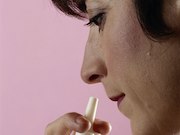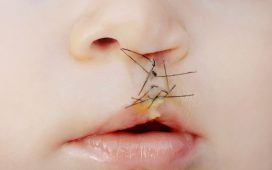Clinically meaningful benefits seen in chronic rhinosinusitis patients; treatment effect imprecise
MONDAY, July 9, 2018 (HealthDay News) — The addition of budesonide to a saline nasal lavage for the treatment of chronic rhinosinusitis provides clinically meaningful benefits, according to a study published online June 7 in JAMA Otolaryngology-Head & Neck Surgery.
Sarah Tait, from the Washington University School of Medicine in St. Louis, and colleagues performed a double-blind, placebo-controlled randomized trial to evaluate the incremental effect of adding budesonide to large-volume, low-pressure saline sinus irrigation for the treatment of chronic rhinosinusitis. A total of 80 patients were enrolled, and 61 completed all analyses. Participants were provided with a sinus rinse kit that included saline and capsules containing either budesonide (treatment group) or lactose (control group).
The researchers found that the budesonide group had a mean score on the Sino-Nasal Outcome Test (SNOT-22) that was 7 points better (95 percent confidence interval, −2 to 16) than the control group, with 79 percent in the budesonide group experiencing a clinically meaningful reduction in their SNOT-22 scores versus 59 percent in the control group, for a difference of 20 percent (95 percent confidence interval, −2.5 to 42.5 percent). The average change in endoscopic scores also favored the budesonide group.
“Given the imprecision in the treatment effect, further research is warranted to define the true effect of budesonide in saline nasal lavage,” the authors write.
One author received royalty income for use of the SNOT-22 instrument. NeilMed provided the rinse bottles and saline solution for the study.
Editorial (subscription or payment may be required)
Copyright © 2018 HealthDay. All rights reserved.








